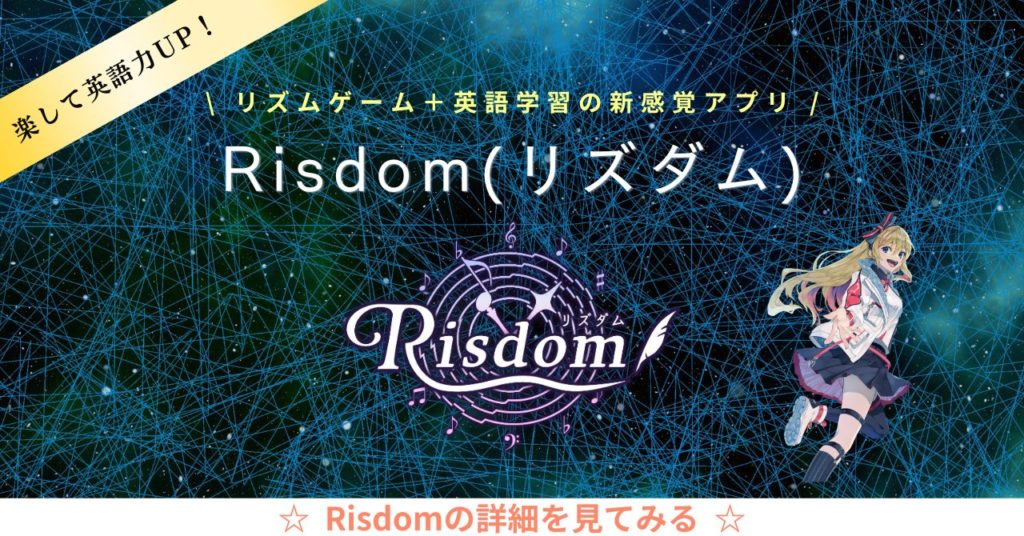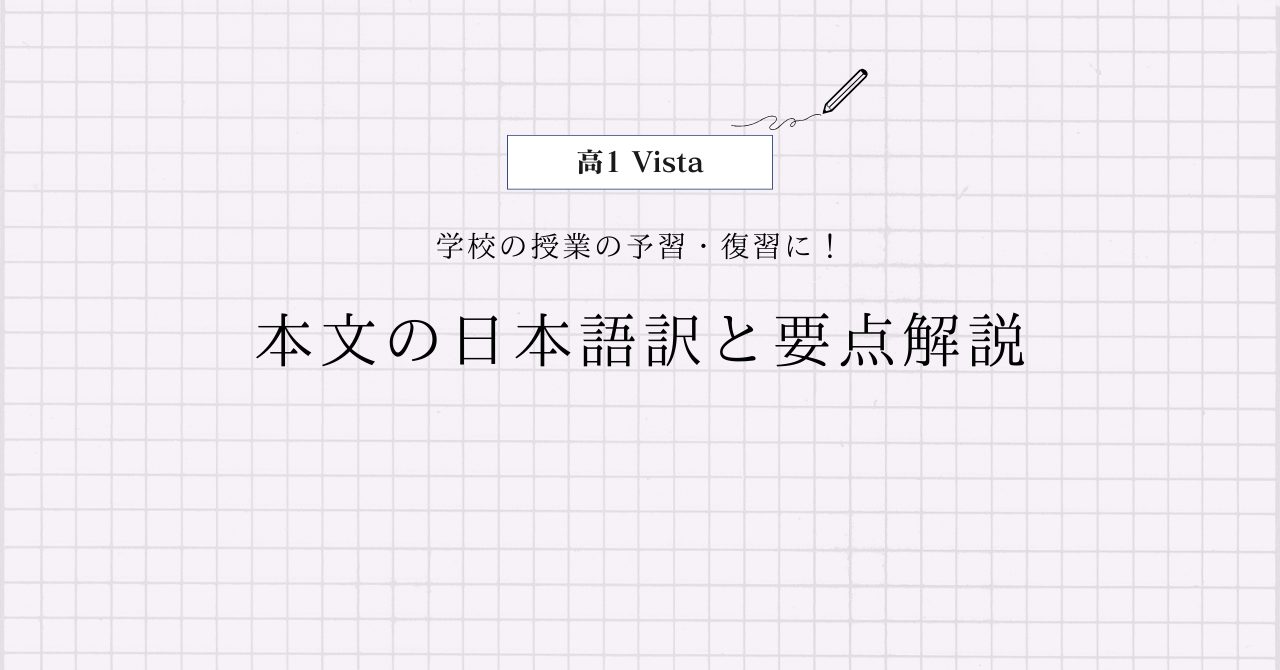三省堂 高1VISTA English CommunicationⅠ Lesson10 Section1の本文の日本語訳と重要箇所の解説です。
Section10-2, 10-3の解説はこちらからご覧ください。
>高1VISTA English CommunicationⅠ Lesson10 Section2 本文和訳
>高1VISTA English CommunicationⅠ Lesson10 Section3 本文和訳
- VISTA English CommunicationⅠ Lesson10 Section1 本文と日本語訳
- VISTA English CommunicationⅠ Lesson10 Section1 重要事項の解説
- We’d like to make special T-shirts.
- We want to be unique and different.
- That’s good. Clothes are a great way to express yourselves.
- Have you ever heard about “ethical fashion”?
- Well, clothes are connected with nature and people.
- “Ethical” means to be kinder to our environment and more conscious about the people making our clothes.
- VISTA English CommunicationⅠ Lesson10 Section1 まとめ
VISTA English CommunicationⅠ Lesson10 Section1 本文と日本語訳
Ethical Fashion
「エシカルファッション」
Mike: We’d like to make special T-shirts.
「僕たちは特別なTシャツを作りたいです。」
Moe: We want to be unique and different.
「独特で珍しくなりたいです。」
Ms. Sato: That’s good. Clothes are a great way to express yourselves.
「それはいいですね。服は自分自身を表現するために素晴らしい方法です。」
Have you ever heard about “ethical fashion”?
「今までに『エシカルファッション』を聞いたことはありますか?」
Mike: Ethical fashion?
「エシカルファッション?」
What’s that?
「それは何ですか?」
Ms. Sato: Well, clothes are connected with nature and people.
「ええと、服は自然や人々と関係しているんです。」
“Ethical” means to be kinder to our environment and more conscious about the people making our clothes.
「『エシカル』とは環境にもっと優しくなることと、服を作っている人のことをもっと意識しよう、ということを意味しています。」

VISTA English CommunicationⅠ Lesson10 Section1 重要事項の解説
We’d like to make special T-shirts.
“would like”は“want”と同じ「が欲しい」という意味で,“would like to 動詞の原形”で「~したい」という重要表現になります。
“special”は「特別な」という形容詞ですね。
We want to be unique and different.
“want to 動詞の原形”で「~したい」という重要表現です!「不定詞の名詞的用法」と一緒に確認しておきましょう。
“unique”は「独特な、珍しい」、“different”は「異なった、様々な、変わった」といった形容詞です。
今回は“different”を「珍しい」と訳しています。
That’s good. Clothes are a great way to express yourselves.
“clothes”は「服」という名詞ですね。“clothes”で1単語で、常に複数形扱いとなります。
“way”は「方法、道」という名詞で、“express”は「を表現する」という動詞になります。
“to express”は「不定詞の形容詞的用法」で、“a great way”を修飾していますね。
“yourselves”は「あなたたち自身」という再帰代名詞で,主語と目的語が同じになるときは,目的語を再帰代名詞を使って表現します。
今回でいうと、「あなたがあなたを表現する方法」となるので、最後が再帰代名詞になっています。
Have you ever heard about “ethical fashion”?
“heard”は“hear(を聞く)”の過去分詞形で、“hear about~”は「~について聞く」という意味ですね。
ここでは「現在完了の経験用法」になっています。
“ethical”は「倫理的な、道徳的な」という形容詞ですが、“ethical fashion”はそのまま「エシカルファッション」でOKです。
Well, clothes are connected with nature and people.
“well”は「ええと」という間投詞です。
“be connected with~”は「~と関係している」という「受動態」の表現になります。
“connect”は「をつなぐ、結ぶ」という動詞ですね。“nature”は「自然」という名詞になります。
“Ethical” means to be kinder to our environment and more conscious about the people making our clothes.
“mean”は「を意味する」という動詞ですね。
“to be”は「不定詞の名詞的用法」になっていて、“kinder”と“more concious”の2つにかかっていますよ。
“kind”は「優しい、親切な」という形容詞、“be concious about~”は「~を意識する」という形容詞表現で、どちらも「比較級」になっています。
“environment”は「環境」という名詞ですね。
また、“making”は「現在分詞」になっていて、“making our clothes“が直前の“the people”を修飾しています。
VISTA English CommunicationⅠ Lesson10 Section1 まとめ
以上がVISTA English CommunicationⅠ Lesson10 Section1の日本語訳となります。
「分詞」「不定詞」などの使い方をしっかり確認しておきましょう!
>高1VISTA English CommunicationⅠ Lesson10 Section2 本文和訳
>高1VISTA English CommunicationⅠ Lesson10 Section3 本文和訳
何か分からない点や他に解説してほしい点があれば,お気軽にコメントしてください!



コメント